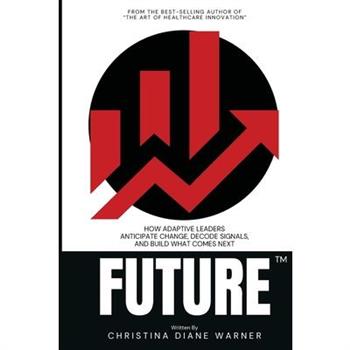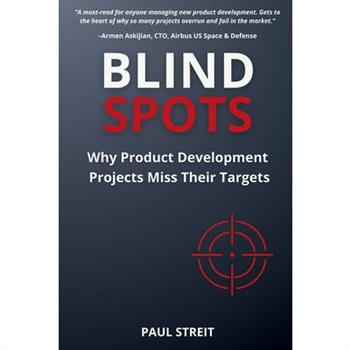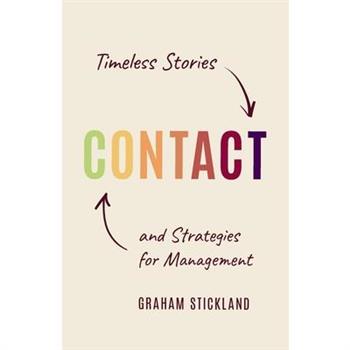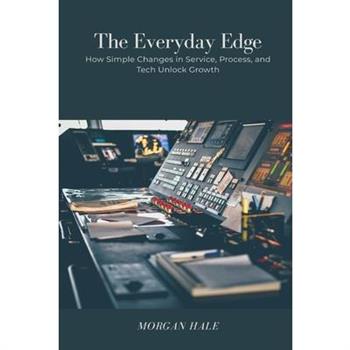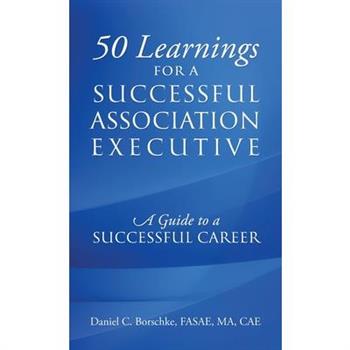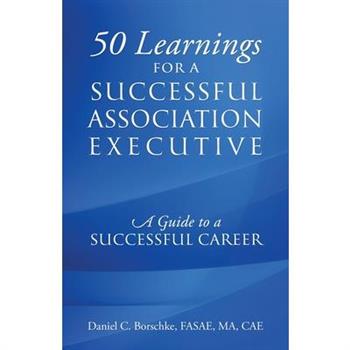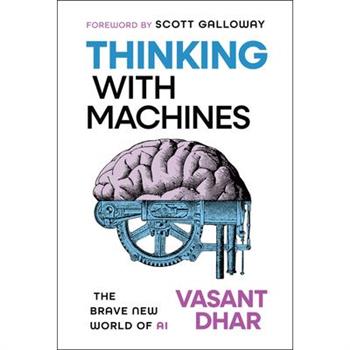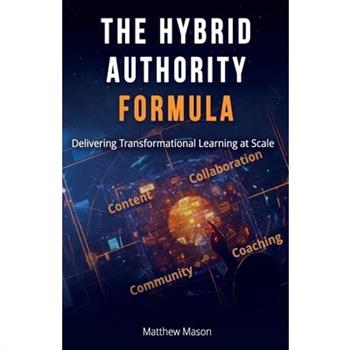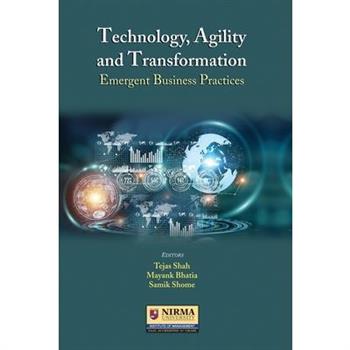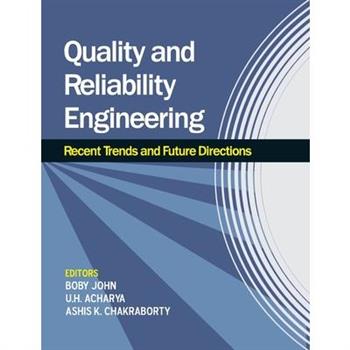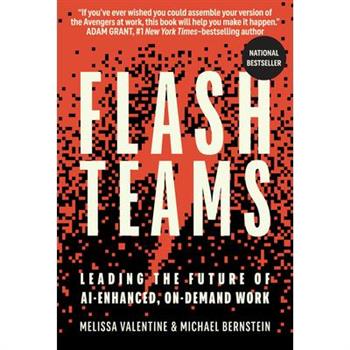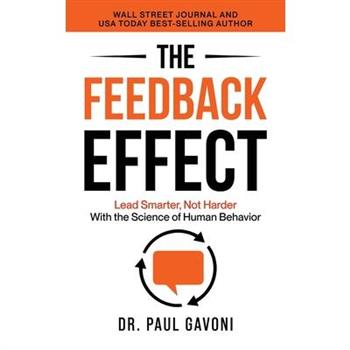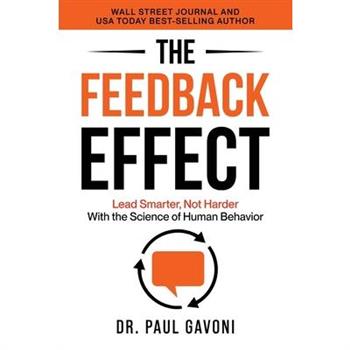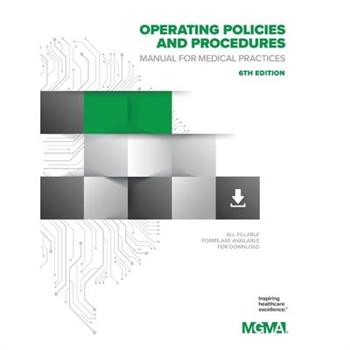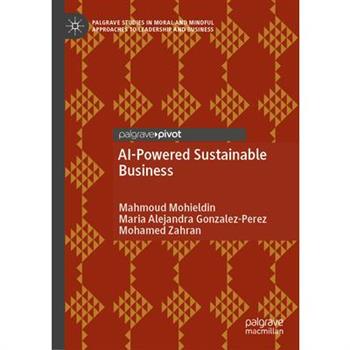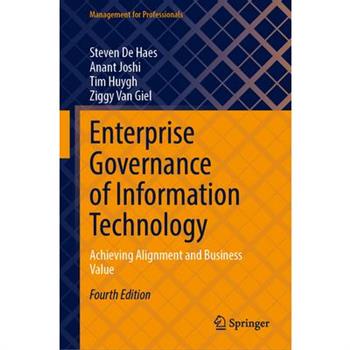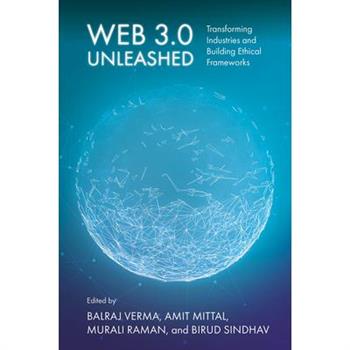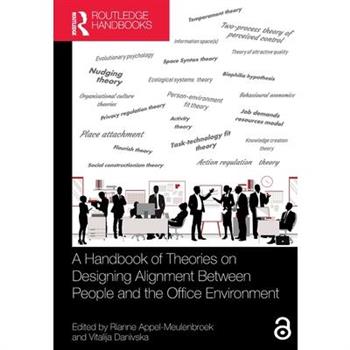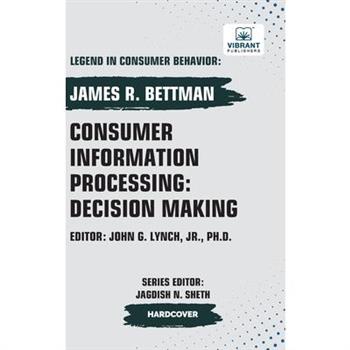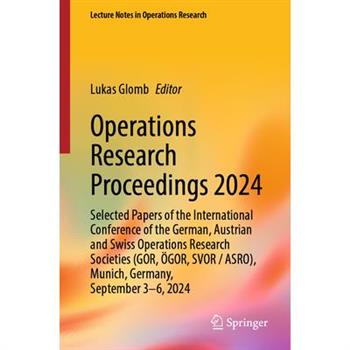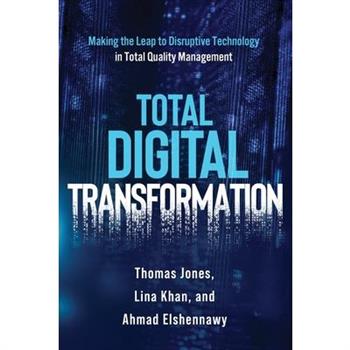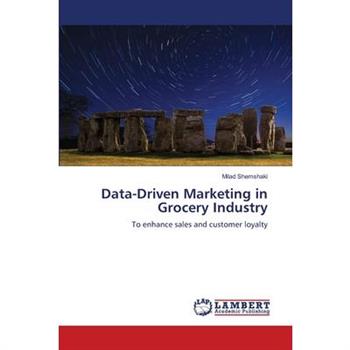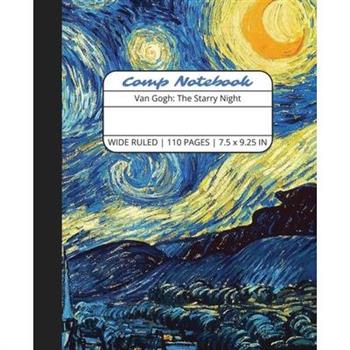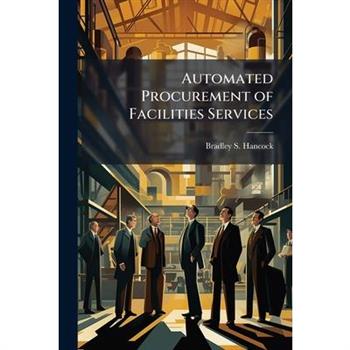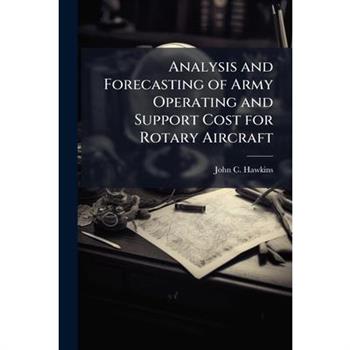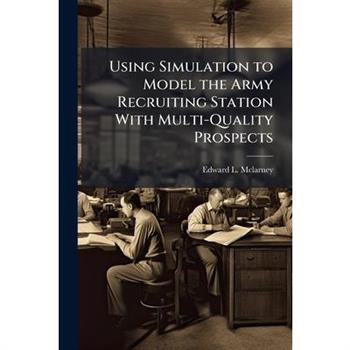FUTURE How Adaptive Leaders Anticipate Change, Decode Signals, and Build What Comes Next
We live in a world where industries transform overnight-but the signs of change are always there long before the shift becomes obvious. Most people just don't know how to see them.After a career spent helping brands anticipate what's coming next across healthcare, technology, and other rapidly evolving sectors, I've learned that the future doesn't arrive suddenly. It arrives quietly. It shows up first in the subtle ways people talk, the small changes in what they value, and the emerging behaviors happening at the edges of culture. By the time the shift hits the mainstream, the opportunity has usually passed.This book is your guide to spotting those early signals before anyone else. It's a practical, accessible roadmap that teaches you how to train your perception-not with more data or trend reports, but with a sharpened ability to notice what most people overlook. Inside, you'll learn the FUTURE Framework, a clear and actionable method designed to help leaders, marketers, creators, and builders recognize what's moving beneath the surface: -Find Signals by paying attention to the margins where new ideas take shape-Understand Meaning to uncover what those signals reveal about changing needs-Transform Assumptions that limit imagination or reinforce outdated thinking-Unlock Patterns by connecting small signals into larger forces of momentum-Render Scenarios that map the possible directions the future may take-Execute and Embed so insights turn into action-and your organization stays readyWhether you're guiding a team, building a brand, or simply trying to stay relevant in a world that won't slow down, this book shows you how to see around corners with confidence. You'll learn how to capture the small truths hidden in everyday behaviors, make sense of emerging shifts, and turn insight into a strategic advantage.The future isn't far away. It's already unfolding all around you.This book teaches you how to recognize it-and use it-long before the rest of the world catches up.Learn more at www.christinadianewarner.com
Blind Spots
Why do so many new products fail in the market?What causes schedule and cost overruns?How can products be developed right the first time?Unlike books focused solely on speeding development or cutting costs, Blind Spots: Why Product Development Projects Miss Their Targets reveals the often-overlooked traps that lead to costly failures and overruns, explains why they happen, and offers practical, actionable ways to avoid them altogether.By the end of this book, readers will understand: Why unjustified optimism causes many new products to fail and miss their targets.How incentives, assumptions, and human behavior drive unrealistic forecasts.Proven steps to identify and prevent failure before it occurs.And be able to: Develop products that truly meet customer needs.Hit market launch dates, budget goals, and performance targets.Stay ahead of projects instead of reacting to crises.Drawing on decades of cross-industry experience, Paul Streit shares insights, strategies, and tools you can apply immediately.
Contact
"I've known Graham for years and been a repeat client of Contact Consulting in a number of different roles in the luxury industry. I never found anyone with a better understanding of group dynamics, motivation and leadership."--Christopher Zanardi-Landi, Executive Vice-President, Louis Vuitton 2012-2017"Great management is built on great conversations and inside-out awareness. I love that Contact shows you how to do both!" --Maureen Lippe, Media Powerhouse/Entrepreneur, former Vogue and Harper's Bazaar Editor, and author of Radical Reinvention"Stickland replaces control with connection, offering practical strategies-clear agreements, courageous conversations, and outcome-focused autonomy-that lift performance across cultures and time zones."--Brendan Hall, International Keynote Speaker, author of Team Spirit, and winning captain, Clipper Round the World Yacht Race 2009-2010"Finally, there is a book that recognises employment is a give and take relationship with the emphasis on give. Stickland makes it clear, today's talent chooses you just as much, if not more, than you choose them. Contact translates that reality into REAL expectations for the modern workplace."--Chris Olshan, Chairman and Chief Executive Officer, The Luxury CouncilContact is a modern field guide for managers who lead in the Employee-Centric Era. Drawing on decades of global work, Graham Stickland shows how today's best managers stop over-controlling and start enabling-creating environments where people feel safe, trusted, and motivated to do their best work. Through vivid stories and practical moves, he translates big ideas into everyday habits: let go so others can step up, design opportunity (not threat) environments, run better conversations, coach with simple loops, align teams around purpose, and build healthy cultures that perform without burnout. Organised in four parts (It Really Is All About Others; Connect and Build Strong Relationships; Team Up, Level Up; and Simplify, Don't Complexify), the book replaces command-and-control with repeatable rhythms any manager can use.
The Everyday Edge
Most business owners believe growth comes from bold leaps or big-budget overhauls. In reality, the fastest, most sustainable gains are hidden in plain sight inside the ordinary routines, overlooked touchpoints, and small decisions made every day. This book reveals how everyday innovation for small business can create powerful momentum without draining resources or overwhelming your team. Packed with field-tested strategies, it shows how to turn small business process improvement into a competitive edge. You ll learn how customer experience design for retailers can boost loyalty and word-of-mouth, why a few low-cost automation tools for business can free hours each week, and how upsell strategies that work can increase profit without pushing customers away. Whether you run a shop, a service company, or an online store, you ll discover that the difference between steady survival and scalable success often lies in a series of smart, simple adjustments. Inside, you ll explore: How to spot the hidden leaks in your workflow and fix them for lasting efficiency Ways to apply operations management for service businesses to deliver faster, better, and more consistently Practical, low-risk methods for ecommerce workflow optimization that add revenue without extra marketing spend A clear approach to incremental innovation for SMBs that keeps your business agile in any market How to use a simple KPI dashboard for small business to track and multiply your wins By the end, you ll have a practical, repeatable system for building an frontline innovation culture one where small, consistent improvements compound into extraordinary results. This isn t about chasing the next big thing; it s about making the most of what you already have, and doing it so well that growth becomes inevitable.
From Spreadsheet to Smart Sheet
Most businesses are drowning in manual tasks they don t even notice approvals waiting in inboxes, numbers buried in spreadsheets, decisions delayed because that s how it s always been done. This quiet inefficiency costs more than time it erodes accuracy, slows growth, and leaves opportunities untapped. This book is your practical, no-jargon guide to escaping that cycle. It shows how AI-assisted decision making can move you from reactive problem-solving to proactive, intelligent operations without needing to be a tech expert. You ll discover how to identify the high-impact processes worth automating, select the right AI workflow tools, and design systems that make smart choices in real time. Built for small business owners, managers, and entrepreneurs, it focuses on solutions you can implement now tools that replace spreadsheets with AI that works quietly in the background while you focus on growth. You ll learn how to: -Turn recurring decisions into streamlined, automate business decisions that never get stuck in bottlenecks -Build workflows that connect your data, people, and systems for seamless action -Use AI tools for small business to cut errors, speed up responses, and free your team from repetitive work -Avoid the pitfalls of over-automation with a human-first design approach Packed with case studies, actionable templates, and industry-tested frameworks, this is not theory it s a playbook. By the final page, you ll know exactly how to replace manual processes with intelligent systems that run faster, leaner, and smarter. Whether you re managing a team of two or two hundred, the path to workflow automation and better decisions starts here.
50 Learnings for a Successful Association Executive
When it comes to advice for nonprofit staff and executives, the best is a blend of expertise from both sides of the board table. In 50 Learnings for a Successful Association Executive: A Guide to a Successful Career, Daniel C. Borschke, FASAE, MA, CAE, offers that. With experience in education, volunteer leadership, executive recruitment, and board of director membership for schools, HOAs, and charities, Borschke offers a unique and layered perspective of what works and what doesn't in nonprofit leadership-and importantly, how to reach that success. By offering personal stories of both times his organizations reached their goals as well as times they did not fully meet the challenges, Borschke guides the reader through mistakes and roadblocks and explains how to capitalize on strengths.
50 Learnings for a Successful Association Executive
When it comes to advice for nonprofit staff and executives, the best is a blend of expertise from both sides of the board table. In 50 Learnings for a Successful Association Executive: A Guide to a Successful Career, Daniel C. Borschke, FASAE, MA, CAE, offers that. With experience in education, volunteer leadership, executive recruitment, and board of director membership for schools, HOAs, and charities, Borschke offers a unique and layered perspective of what works and what doesn't in nonprofit leadership-and importantly, how to reach that success. By offering personal stories of both times his organizations reached their goals as well as times they did not fully meet the challenges, Borschke guides the reader through mistakes and roadblocks and explains how to capitalize on strengths.
Thinking with Machines
We are entering a brave new world, thanks to AI. We must shape this future to the advantage of everyone, and not just a select few. Thinking with Machines: The Brave New World of AI tells the story of AI from its very beginnings through the eyes of Vasant Dhar, currently Robert A Miller Professor at the Stern School of Business, and Professor of Data Science at New York University. Professor Dhar lived through the invention of AI algorithms and their various permutations until today. He brought AI to Wall Street in the 90s and was the first to teach AI at NYU Stern. Through his story and the lessons that it reveals, we learn about AI's progress and reversals, its promises and dangers, and what we need to address before the machine gets away from us. Thinking with Machines is essential reading for AI enthusiasts and learners at all levels seeking knowledge on the greatest technological advancement of our time.
The Hybrid Authority Formula
Design transformational programs that scale. Without burning out, selling out, or staying stuck in outdated learning models.Online learning is broken. Courses are abandoned. Content is consumed but rarely applied. Coaches are stretched thin. And communities? Often feel like empty Slack channels.In a world where attention is scattered and expectations are rising, it's no longer enough to deliver information. You need to create experiences. Ones that are engaging, effective - and scalable.That's where The Hybrid Authority Formula comes in.Inside, you'll discover a proven framework to design learning experiences that: - Combine self-paced content with powerful human connection. - Use community, collaboration, and coaching as delivery tools - not just support perks. - Create real results for your clients while protecting your energy, time, and boundaries.Whether you're a coach, educator, consultant, or expert ready to scale, this book gives you the thinking, structure, and tools to build programs that stand out, sell out, and deliver on their promise.This isn't about adding more modules or hosting more calls.It's about shifting from content creator to transformation architect.You don't need to be everywhere.You just need to build the right experience - once.For experts, coaches, and educators ready to scale with integrity - The Hybrid Authority Formula is your blueprint to build transformational, scalable programs that combine content, community, collaboration, and coaching.
Technology, Agility and Transformation
The global business landscape is undergoing a profound transformation, driven by rapid technological advancement. This book delves into how the implementation of technology is not merely an operational upgrade but a fundamental driver of long-term sustainability, customer-centricity, and cost efficiency across the entire organizational value chain. We explore the key pillars of this digital revolution, which include the critical shift to data-driven decision-making, the rise of globally decentralized manufacturing, and the comprehensive digitalization of operations through automation and artificial intelligence.Further, the text examines contemporary models such as hyper-local delivery systems, the expansive world of digital commerce, and the paramount importance of investments in data and cybersecurity. Topics like digital supply chains, the impact of fintech, and the evolutionary leap from Industry 4.0 to 5.0 are thoroughly investigated. The book also addresses the human element, analyzing the management of virtual teams and the growing necessity for compassionate leadership in a digitally connected world. Ultimately, this work provides a comprehensive framework for understanding how organizations can cultivate agility, seamlessly integrate technology, and leverage it to unlock maximum value. It is designed to equip readers with the knowledge to analyze and implement cutting-edge strategies that benefit all stakeholders in this new technological era.
Quality and Reliability Engineering
This book extends beyond theoretical chapters to include substantial material on practical applications and case studies within quality and reliability engineering and Six Sigma. It successfully demonstrates the significant returns generated by creating a common platform that bridges academic researchers and industry practitioners.For engineering students, this volume serves as an excellent supplementary textbook for courses in quality and reliability engineering. Researchers will find it invaluable for updating their knowledge on the latest developments in these fields. Industrial professionals, meanwhile, can gain deep insights into solving real-world problems by applying the detailed Six Sigma, quality, and reliability engineering methodologies outlined. Furthermore, all readers can benefit from the numerous successful case studies presented, which illustrate the direct implementation and tangible benefits of these principles. By uniting rigorous theory with proven practice, the book acts as a vital resource for a diverse audience committed to operational excellence.
You Don't Have to Achieve to Be Loved
Do you ever look at your life and wonder why you're not happier? Do you feel like you want to make a change but aren't sure where to begin? Then, You Don't Have to Achieve to Be Loved is for you. Becca Pearce understands firsthand how hard change can be. Two life-altering events forced her to realize that what she once wanted no longer felt right. The resulting journey reshaped her path, upending everything she had believed about success and happiness. In this book, Becca shares the knowledge she gained, outlining a step by-step process she developed that has helped hundreds of clients navigate change and transform their lives. Her straightforward method will help you identify what's important in your life and how you can use this understanding to design the life you really want to live. Over the past twelve years, Becca has learned the value of vulnerability, the importance of optimism, and the imperative to find the life you want to live now because we're never promised tomorrow. A former CEO and state official, she is now the president of Extend Coaching & Consulting, a firm dedicated to helping people find the courage to live the life they've been dreaming of.
You Don't Have to Achieve to Be Loved
Do you ever look at your life and wonder why you're not happier? Do you feel like you want to make a change but aren't sure where to begin? Then, You Don't Have to Achieve to Be Loved is for you. Becca Pearce understands firsthand how hard change can be. Two life-altering events forced her to realize that what she once wanted no longer felt right. The resulting journey reshaped her path, upending everything she had believed about success and happiness. In this book, Becca shares the knowledge she gained, outlining a step by-step process she developed that has helped hundreds of clients navigate change and transform their lives. Her straightforward method will help you identify what's important in your life and how you can use this understanding to design the life you really want to live. Over the past twelve years, Becca has learned the value of vulnerability, the importance of optimism, and the imperative to find the life you want to live now because we're never promised tomorrow. A former CEO and state official, she is now the president of Extend Coaching & Consulting, a firm dedicated to helping people find the courage to live the life they've been dreaming of.
What would Ohno-san do?
Taiichi Ohno (1912-1990) is considered the father of the Toyota Production System. For over five decades, Ohno-san, as he was respectfully referred to by colleagues and pupils, put novel management practices to work at Toyota that have since become commonplace in the West. Think jidoka, just-in-time, kanban and kaizen. An industrial engineer by training, Ohno-san integrated lean principles into a system of flow and human accomplishment that encompassed Toyota, its suppliers and distributors. Ohno-san's superpower: He believed unwaveringly in people's ability to use their intellect and mastery for the purpose of solving problems on the shop floor, the company, and throughout society at large.About the editors: Niels Pflaeging is an entrepreneur, consultant, researcher, creator of socio-tech and practitioner of organizational transformation. Stefan Schmeing has over two decades of experience in risk, quality and sustainability management. He works for a Japanese trading company. "Let the flow manage the processes, and not let management manage the flow." Taiichi Ohno
The Lead-Attitudes of Great Leadership
The Lead-Attitudes of Great LeadershipWelcome to a work dedicated to exploring the Lead-Attitudes of Great Leadership. Our aim is to provide you with a leadership model designed to inspire aspirational greatness in yourself and those around you while cultivating transformational character. At its core, a Lead-Attitude is defined as an intentional practice of leadership that shapes the culture - specifically, the relationships - of an organization and its people. These attitudes do more than influence behaviors; they inspire individuals to rise beyond their current potential while fostering growth that transforms both character and capability. By dissecting our definition, you can uncover the essence of our approach to leadership as a deliberate, relational, and transformative force - one that elevates not only results but also the humanity and aspirations of everyone involved. Join us on this journey to discover how The Lead-Attitudes can revolutionize your leadership and the lives of those you lead.Lead-Attitudes - "Are those intentional practices of leadership that impact the cultures (Relationships) of organizations and its people to inspire aspirational greatness while growing transformational leaders." gcpThe Lead-Attitudes are...Lead with humility and graceLead with insight and wisdom Aspirational Servant-Leaders, While Growing Transformational LeaderLead with purpose and legacy (personal)Lead with accountability and consistencyLead with example and assurance (boldness)Lead with E-IQ and C-IQ ("Being" and "Doing")Lead with resolve and tenacityLead with integrity and transparencyLead with foresight and successionLead with intention and focus (organizational)Lead with vision and strategyLead with inspiration and acknowledgementCome on in and get started with the Lead-Attitudes...
Flash Teams
A USA Today Bestseller A dramatic new future of work in which managers assemble exactly the expertise they need--within minutes. "If you've ever wished you could assemble your version of The Avengers at work, this book will help you make it happen."--Adam Grant, #1 New York Times-bestselling author of Think Again and host of the podcast Re: Thinking Gone are the days of static organizational charts and staffing based on the manager's rolodex and intuition. Now you can recruit any expertise you need from a global online network within minutes: an on-demand, on-the-spot expert at the exact moment that you need their help. You can right-size their involvement, too; some of those experts give a second opinion or a moment of brainstorming, whereas others join as full-fledged team members for a sustained collaborative effort. This is the future promised by flash teams, a model that The New York Times has already praised for its "revolutionary potential" a world where experts are available anytime and everywhere, where remote work has become a norm, and where AI is in the loop to guide team decisions. In Flash Teams, award-winning management scholar Melissa Valentine and computer scientist Michael Bernstein chart the opportunities of flash teams and navigate the challenges that teams and managers will face. They distill lessons from their own work assembling and managing flash teams on demand that every manager can learn from so they can successfully use flash teams in their own organizations. Drawing on original research and industry examples, this book will help readers to: Recognize and source needed expertise within minutesAnticipate and plan team designs with AIRedesign team structures on the fly as projects evolveIndustries are already being transformed by this new approach to teaming. Flash Teams arms leaders, managers, and entrepreneurs with the tools they need to accomplish their goals with confidence, speed, and agility.
The Feedback Effect
You're not bad at giving feedback. You've just never been taught how behavior actually works.And you're not alone-only 26% of employees say the feedback they receive actually helps them improve (Gallup).The Feedback Effect: Lead Smarter, Not Harder with the Science of Human BehaviorA fast, practical read-intentionally designed to be consumed in about two hours.Tired of giving feedback that goes nowhere?Ever feel like your input is ignored, misinterpreted, or flat-out avoided?Too often, feedback is treated like an art. Lots of books offer tips on what to say and how to say it. But very few get precise about when to give feedback-and even fewer explain why it works (or why it backfires).This book does.Grounded in behavior analysis-the science of human behavior-The Feedback Effect gives you a clear, actionable blueprint for shaping behavior, not just sharing opinions. Whether you're coaching performance, correcting missteps, or reinforcing excellence, you'll learn how to do it with purpose and precision.You'll learn how to: Deliver feedback that motivates instead of demoralizesReinforce what works-instead of just reacting to what doesn'tDiagnose whether it's a "can't do" or "won't do" issueBuild feedback habits that shape, sustain, and scale successWhether you're a CEO, coach, school leader, or supervisor-this book is about changing behavior that drives results.
The Feedback Effect
You're not bad at giving feedback. You've just never been taught how behavior actually works.And you're not alone-only 26% of employees say the feedback they receive actually helps them improve (Gallup).The Feedback Effect: Lead Smarter, Not Harder with the Science of Human BehaviorA fast, practical read-intentionally designed to be consumed in about two hours.Tired of giving feedback that goes nowhere?Ever feel like your input is ignored, misinterpreted, or flat-out avoided?Too often, feedback is treated like an art. Lots of books offer tips on what to say and how to say it. But very few get precise about when to give feedback-and even fewer explain why it works (or why it backfires).This book does.Grounded in behavior analysis-the science of human behavior-The Feedback Effect gives you a clear, actionable blueprint for shaping behavior, not just sharing opinions. Whether you're coaching performance, correcting missteps, or reinforcing excellence, you'll learn how to do it with purpose and precision.You'll learn how to: Deliver feedback that motivates instead of demoralizesReinforce what works-instead of just reacting to what doesn'tDiagnose whether it's a "can't do" or "won't do" issueBuild feedback habits that shape, sustain, and scale successWhether you're a CEO, coach, school leader, or supervisor-this book is about changing behavior that drives results.
Operating Policies and Procedures Manual for Medical Practices, 6th Edition
This popular manual has been updated to help busy medical practice executives keep their practices up to date on the latest regulations and operational processes. Keeping practice manuals current can be a daunting task, and developing them in a clear, consistent, and compliant way only adds to the burden. When employees need clearer direction to succeed, you need a strong solution. The Operating Policies and Procedures Manual for Medical Practices, 6th edition offers practical, easy-to-use tools and guidance to support your team's success.Updated to reflect an office that is fully automated, this manual is designed for all medical practices regardless of organizational size, type, or specialty mix. You'll receive more than 200 customizable policies and procedures that you can use in your practice today. Let the Operating Policies and Procedures Manual for Medical Practices, 6th edition be your guide on the journey to managing a successful practice. This resource makes it simple to develop and maintain your practice's manual.
AI-Powered Sustainable Business
This book explores the complex interplay between AI and corporate-driven sustainable development. Merging theoretical insights with practical applications, it engages debates on the ethical use of AI in sustainable development and corporate responsibility while examining how AI facilitates sustainable practices and presents complex dilemmas, particularly in balancing economic, social, and environmental sustainability. The narrative is enriched by a comprehensive review of academic studies, analyzing how established and sustainability-rooted companies approach these paradoxes differently. The authors critically assess how AI and corporate actions intertwine with regional efforts to combat grand humanity challenges, such as climate change and poverty, highlighting the need for transformative strategies and governance modes that can propel positive corporate contributions to sustainability. Through a mix of scholarly insights and expert viewpoints, this volume invites readers to explore the multifaceted relationship between AI, corporate sustainability, and global environmental goals. It is an essential read for business leaders, policymakers, and anyone invested in shaping a sustainable future in an AI-driven world.
Decommissioning Aging Installations and Declining Technologies
This open-access brief tackles the idea, prevalent in some industrial sectors, that decommissioning, de-pollution and waste management are a necessary evil rather than a predictable phase of industry for which preparations can and should be made in advance. The brief forms the beginning of a conversation on the conditions under which current examples of decommissioning and phasing-out could help establish a basis for envisioning future dismantling efforts across safety-critical systems and in the light of the sustainability transitions with which many sectors have to engage. What are the conditions that would allow these operations to be seen, not as a sad act of deconstruction, but rather as a source of learning about technological rebound, renaissance and ecological redirection? This brief will be of interest to academic researchers and graduate students working in safety science, sustainability and environmental risk and management. Members of expert bodies - safety and health agencies, environmental agencies, regulators and inspectors - consultants working with hazardous industries and policy-makers dealing with the environmental and health-and-safety law may find the advice given in this book of practical use in cutting down the undesirable environmental effects of industrial decommissioning.
Basic Hospitality Skills Training
The main objective of this book is to present to hospitality students, employees, practitioners and the reading public, hotel management's day to day operational activity, from the perspective of an avid practitioner, knowing very well, that it will be useful as a guide in the quest for a broader hospitality knowledge.The various chapters of the book were developed as training materials and they have been used successfully to upgrade the operational knowledge of hotel workers, supervisors, and managers in the area of Food and Beverage, Rooms Division and Front-line Management.The 5-chapter book takes into consideration the on the job and lifelong experience acquired through Hilton Hotel Abuja, Sheraton Hotel Abuja, Federal Palace Hotel Lagos, Kentucky Fried Chicken USA, Ramada Inn USA and Choice Hotel, USA. Additionally, with special programs conducted by KFC and Experior LLC and Choice Hotel University, USA.Hope the book serves a purpose of knowledge and I commend it to all men and women of good will. Thank you.
Web 3.0 Unleashed
Discover how the internet's next evolution is reshaping the world of business. The second of two volumes, Web 3.0 Unleashed: Transforming Industries and Building Ethical Frameworks explores the groundbreaking technologies that define Web 3.0--blockchain, decentralized finance (DeFi), augmented reality, and artificial intelligence--and their profound impact on the way businesses innovate, grow, and connect with customers. Through insightful analysis and real-world examples, this contributed work provides a comprehensive guide to harnessing Web 3.0's potential. From revolutionising supply chains to reimagining customer engagement, every aspect of business is poised for transformation. Whether you're a technologist, entrepreneur, executive, academic, or student, this book equips you with the tools, strategies, and knowledge to thrive in the digital economy.
Industrial Accidents And Hygiene Series, Issue 2
"Industrial Accidents And Hygiene Series, Issue 2" offers a detailed look into the landscape of workplace incidents and the prevailing standards of industrial hygiene. Compiled by the United States Bureau of Labor Statistics, this report provides valuable insights into the causes and consequences of accidents in various industries. It serves as a crucial resource for understanding historical trends and informing contemporary practices in occupational safety. The content addresses the conditions that contribute to accidents and examines the measures employed to mitigate risks, making it essential reading for safety professionals, industrial managers, and anyone concerned with improving workplace environments.This work has been selected by scholars as being culturally important, and is part of the knowledge base of civilization as we know it. This work was reproduced from the original artifact, and remains as true to the original work as possible. Therefore, you will see the original copyright references, library stamps (as most of these works have been housed in our most important libraries around the world), and other notations in the work.This work is in the public domain in the United States of America, and possibly other nations. Within the United States, you may freely copy and distribute this work, as no entity (individual or corporate) has a copyright on the body of the work.As a reproduction of a historical artifact, this work may contain missing or blurred pages, poor pictures, errant marks, etc. Scholars believe, and we concur, that this work is important enough to be preserved, reproduced, and made generally available to the public. We appreciate your support of the preservation process, and thank you for being an important part of keeping this knowledge alive and relevant.
Forms of Organising in Industrial History
This shortform book presents key peer-reviewed research selected by expert series editors and contextualised by new analysis from each author on different forms of organising British industry.
Methodological Approaches for Workplace Research and Management
This book explores a wide range of methodological approaches to examining various forms of workplace physical environments. It focuses on pressing questions regarding the relationship between the spatial component of the workplace, including its progressive hybridisation with other physical and virtual places, and its users, be they public organisations, private companies, or start-up businesses and solopreneurs.International contributors address a range of methods that are applicable both in research and practice to confront the most cutting-edge workplace-related issues. The assumption is that work has been changing, thanks to the virtualisation of many activities, and that homeworking and hybrid working modes are expected to increase significantly after Covid-19. Thus, spaces hosting work need to adapt accordingly. Researchers and practitioners have been struggling to determine how much space will be needed by companies, what kind of space will better host different work activities, which workers are more suited for working from home, and which instead are more productive if they have an office-based working arrangement. The necessary evolution of the office should follow evidence-based decisions on the abovementioned matters, which are only possible through rigorous investigations. This volume aims to support these investigations, which call for inventive applications of qualitative and quantitative methodologies. By doing so the book will encourage solid practices and thorough research agendas in workplace design, management, and use.Contributions come from different disciplines, including facilities management, real estate management, psychology, design, architecture, sociology, and organisation studies. Chapters highlight the importance of appropriate methodologies, borrowed from different fields, in addressing contemporary questions and developments in workplaces. By analysing the challenges and opportunities for conducting rigorous research in different workplace settings, this book will be critical reading for both academics and students, as well as for decision-makers and professionals who deal with workplace design and management.The Open Access version of this book, available at www.taylorfrancis.com, has been made available under a Creative Commons Attribution-Non Commercial-No Derivatives (CC-BY-NC-ND) 4.0 license.
A Handbook of Theories on Designing Alignment Between People and the Office Environment
Although workplace design and management are gaining more and more attention from modern organizations, workplace research is still very fragmented and spread across multiple disciplines in academia. There are several books on the market related to workplaces, facility management (FM), and corporate real estate management (CREM) disciplines, but few open up a theoretical and practical discussion across multiple theories from different fields of studies. Therefore, workplace researchers are not aware of all the angles from which workplace management and effects of workplace design on employees has been or could be studied. A lot of knowledge is lost between disciplines, and sadly, many insights do not reach workplace managers in practice. Therefore, this new book series is started by associate professor Rianne Appel-Meulenbroek (Eindhoven University of Technology, the Netherlands) and postdoc researcher Vitalija Danivska (Aalto University, Finland) as editors, published by Routledge. It is titled 'Transdisciplinary Workplace Research and Management' because it bundles important research insights from different disciplinary fields and shows its relevance for both academic workplace research and workplace management in practice. The books will address the complexity of the transdisciplinary angle necessary to solve ongoing workplace-related issues in practice, such as knowledge worker productivity, office use, and more strategic workplace management. In addition, the editors work towards further collaboration and integration of the necessary disciplines for further development of the workplace field in research and in practice. This book series is relevant for workplace experts both in academia and industry.This first book in the series focuses on the employee as a user of the work environment. The 21 theories discussed and applied to workplace design in this book address people's ability to do their job and thrive in relation to the office workplace. Some focus more on explaining why people behave the way they do (the psychosocial environment), while others take the physical and/or digital workplace quality as a starting point to explain employee outcomes such as health, satisfaction, and performance. They all explain different aspects for achieving employee-workplace alignment (EWA) and thereby ensuring employee thriving. The final chapter describes a first step towards integrating these theories into an overall interdisciplinary framework for eventually developing a grand EWA theory.The Open Access version of this book, available at http: //www.taylorfrancis.com/books/e/9781003128830, has been made available under a Creative Commons Attribution-Non Commercial-No Derivatives 4.0 license.
Consumer Information Processing
Consumer Information Processing: Decision Making by James R. Bettman provides a pioneering exploration into how consumers perceive, interpret, and respond to information when making purchase decisions. Drawing from cognitive psychology, behavioral science, and marketing strategy, Bettman constructs a detailed framework that decodes the mental models consumers use to evaluate alternatives and make trade-offs. This book dives deep into the mechanics of memory, attention, and learning, showcasing how these processes influence buying behavior across product categories.Ideal for academics, market researchers, and behavioral economists, the book blends empirical research with theoretical models to reveal how consumers process complexity, cope with uncertainty, and adapt over time. It also touches on real-world applications-from advertising effectiveness to digital interface design-offering critical insight for brands looking to influence decision-making pathways.Part of the Legend in Consumer Behavior series, this edition cements Bettman's legacy as a transformative thinker in the field. For anyone studying or influencing consumer behavior, this book remains an essential, research-driven resource.
Comp Notebook
Brand: The Write SuppliesColor: Leopard Print PatternSheet Size: 7.5 x 9.25 inchesRuling Type: Wide RuledSpecial Feature: Soft CoverAbout this itemThis composition book cover features a fun and spooky Cute Halloween Pattern.Wide ruled double-sided pages for taking notes, writing poetry, drawing, mind maps, and journaling.Standard size composition book to use for science, math, english, history, and any school writing assignments.Soft cover bound design that fits nicely in a backpack or tote bag to take with you on the go.An ideal note book for school, office, homeschool, work or creative writing and note taking for kids and adults.
Total Digital Transformation
From cultural resistance and skill gaps to technological limitations, this book identifies the most common barriers organizations face and offers actionable strategies to overcome them. Learn how to implement a robust plan that bridges the gap between traditional quality management and the digital future.
Comp Notebook
Brand: The Write SuppliesColor: Van Gogh Almond BlossomSheet Size: 7.5 x 9.25 inchesRuling Type: Wide RuledSpecial Feature: Soft CoverAbout this itemThis composition book cover features the famous painting Almond Blossom by Vincent Van Gogh.Wide ruled double-sided pages for taking notes, writing poetry, drawing, mind maps, and journaling.Standard size composition book to use for science, math, english, history, and any school writing assignments.Soft cover bound design that fits nicely in a backpack or tote bag to take with you on the go.An ideal note book for school, office, homeschool, work or creative writing and note taking for kids and adults.
Comp Notebook
Brand: The Write SuppliesColor: Leopard Print PatternSheet Size: 7.5 x 9.25 inchesRuling Type: Wide RuledSpecial Feature: Soft CoverAbout this itemThis composition book cover features a fun, cute, and wild Leopard Print Pattern.Wide ruled double-sided pages for taking notes, writing poetry, drawing, mind maps, and journaling.Standard size composition book to use for science, math, english, history, and any school writing assignments.Soft cover bound design that fits nicely in a backpack or tote bag to take with you on the go.An ideal note book for school, office, homeschool, work or creative writing and note taking for kids and adults.
Comp Notebook
Brand: The Write SuppliesColor: Van Gogh Cafe Terrace at NightSheet Size: 7.5 x 9.25 inchesRuling Type: Wide RuledSpecial Feature: Soft CoverAbout this itemThis composition book cover features the famous painting Cafe Terrace at Night by Vincent Van Gogh.Wide ruled double-sided pages for taking notes, writing poetry, drawing, mind maps, and journaling.Standard size composition book to use for science, math, english, history, and any school writing assignments.Soft cover bound design that fits nicely in a backpack or tote bag to take with you on the go.An ideal note book for school, office, homeschool, work or creative writing and note taking for kids and adults.
The Paper Box Maker And American Bookbinder, Volumes 9-10
Explore the intricate world of paper box manufacturing and American bookbinding in Volumes 9-10 of "The Paper Box Maker and American Bookbinder." This comprehensive compilation offers insights into the techniques, challenges, and innovations of these essential trades. Delve into detailed descriptions of manufacturing processes, equipment, and industry trends.Discover the artistry and craftsmanship involved in creating paper boxes and binding books, reflecting the dedication and skill of artisans and industrial workers. A valuable resource for historians, industry professionals, and anyone interested in the evolution of manufacturing and print culture.This work has been selected by scholars as being culturally important, and is part of the knowledge base of civilization as we know it. This work was reproduced from the original artifact, and remains as true to the original work as possible. Therefore, you will see the original copyright references, library stamps (as most of these works have been housed in our most important libraries around the world), and other notations in the work.This work is in the public domain in the United States of America, and possibly other nations. Within the United States, you may freely copy and distribute this work, as no entity (individual or corporate) has a copyright on the body of the work.As a reproduction of a historical artifact, this work may contain missing or blurred pages, poor pictures, errant marks, etc. Scholars believe, and we concur, that this work is important enough to be preserved, reproduced, and made generally available to the public. We appreciate your support of the preservation process, and thank you for being an important part of keeping this knowledge alive and relevant.
The Complete Stenographer
The Complete Stenographer offers a comprehensive guide to mastering the principles of Benn Pitman phonography. Designed for aspiring stenographers and secretaries, this book provides a clear and effective method for learning and applying shorthand techniques. The book features carefully selected drills to reinforce understanding and build proficiency.Authored by Harry Vincent Dougherty, this book presents a structured approach to stenography, making it an invaluable resource for anyone seeking to develop essential skills for the modern office. With its emphasis on practical application and thorough instruction, The Complete Stenographer remains a relevant and beneficial tool for both students and professionals.This work has been selected by scholars as being culturally important, and is part of the knowledge base of civilization as we know it. This work was reproduced from the original artifact, and remains as true to the original work as possible. Therefore, you will see the original copyright references, library stamps (as most of these works have been housed in our most important libraries around the world), and other notations in the work.This work is in the public domain in the United States of America, and possibly other nations. Within the United States, you may freely copy and distribute this work, as no entity (individual or corporate) has a copyright on the body of the work.As a reproduction of a historical artifact, this work may contain missing or blurred pages, poor pictures, errant marks, etc. Scholars believe, and we concur, that this work is important enough to be preserved, reproduced, and made generally available to the public. We appreciate your support of the preservation process, and thank you for being an important part of keeping this knowledge alive and relevant.
Comp Notebook
Brand: The Write SuppliesColor: Christmas Tree SnowflakesSheet Size: 7.5 x 9.25 inchesRuling Type: Wide RuledSpecial Feature: Soft CoverAbout this itemThis composition book cover features a festive holiday Christmas Tree Snowflake pattern.Wide ruled double-sided pages for taking notes, writing poetry, drawing, mind maps, and journaling.Standard size composition book to use for science, math, english, history, and any school writing assignments.Soft cover bound design that fits nicely in a backpack or tote bag to take with you on the go.An ideal note book for school, office, homeschool, work or creative writing and note taking for kids and adults.
The Complete Stenographer
The Complete Stenographer offers a comprehensive guide to mastering the principles of Benn Pitman phonography. Designed for aspiring stenographers and secretaries, this book provides a clear and effective method for learning and applying shorthand techniques. The book features carefully selected drills to reinforce understanding and build proficiency.Authored by Harry Vincent Dougherty, this book presents a structured approach to stenography, making it an invaluable resource for anyone seeking to develop essential skills for the modern office. With its emphasis on practical application and thorough instruction, The Complete Stenographer remains a relevant and beneficial tool for both students and professionals.This work has been selected by scholars as being culturally important, and is part of the knowledge base of civilization as we know it. This work was reproduced from the original artifact, and remains as true to the original work as possible. Therefore, you will see the original copyright references, library stamps (as most of these works have been housed in our most important libraries around the world), and other notations in the work.This work is in the public domain in the United States of America, and possibly other nations. Within the United States, you may freely copy and distribute this work, as no entity (individual or corporate) has a copyright on the body of the work.As a reproduction of a historical artifact, this work may contain missing or blurred pages, poor pictures, errant marks, etc. Scholars believe, and we concur, that this work is important enough to be preserved, reproduced, and made generally available to the public. We appreciate your support of the preservation process, and thank you for being an important part of keeping this knowledge alive and relevant.
Climate Neutrality and Sustainable Ecosystems
This book is an essential contribution to the growing discourse on climate change, sustainability, and global warming. It explores the complex challenges of climate change and provides actionable strategies for achieving climate neutrality, emphasizing the balance between economic growth and ecosystem preservation. Highlighting the critical role of government leadership and policy integration, the book explores how collaboration across stakeholders, i.e., governments, private sectors, civil society, and international organizations, can drive sustainable frameworks. It provides examples of forward-thinking policies and initiatives that have successfully reduced carbon emissions and promoted green technologies worldwide. A significant focus is placed on the interconnectedness of human activity and ecosystems, addressing the delicate balance of ocean health, migration patterns, and economic systems. The book also explores the unique challenges faced by developing nations, emphasizing the need for adaptive strategies to ensure food security, growth, and resilience to extreme weather events. With sector-specific insights, the book highlights how industries like energy, transport, and tourism can adopt sustainable practices, leveraging technology and human capital to transition to a low-carbon future. Additionally, it examines the role of climate finance in supporting this transition, showcasing tools like green bonds, carbon pricing, and international funds. Featuring real-world examples and case studies, the book offers a practical guide for policymakers, businesses, and practitioners, providing a roadmap for scalable and innovative climate solutions. It is a must-read for anyone dedicated to fostering a sustainable and climate-resilient future.
Data-Driven Marketing in Grocery Industry
Comp Notebook
Brand: The Write SuppliesColor: Van Gogh The Starry Night PaintingSheet Size: 7.5 x 9.25 inchesRuling Type: Wide RuledSpecial Feature: Soft CoverAbout this itemThis composition book cover features the famous painting The Starry Night by Vincent Van Gogh.Wide ruled double-sided pages for taking notes, writing poetry, drawing, mind maps, and journaling.Standard size composition book to use for science, math, english, history, and any school writing assignments.Soft cover bound design that fits nicely in a backpack or tote bag to take with you on the go.An ideal note book for school, office, homeschool, work or creative writing and note taking for kids and adults.
The Bossy Girl's Guide to Leadership
The Bossy Girl's Guide to Leadership is a deeply personal and powerful exploration of one woman's journey from trauma to triumph, aimed at empowering women leaders who struggle with self-doubt, imposter syndrome, and the feeling of not being "enough." Through raw, candid storytelling, the author recounts pivotal life experiences, from childhood abandonment and abuse to challenges in professional environments that shaped her identity and resilience. Rather than letting these experiences define her, she chose to harness them as fuel to become a successful leader, mother, and mentor. The narrative artfully weaves personal stories with broader themes of societal expectations, leadership identity, and the importance of support systems like a "Support Squad." It offers both heartfelt validation and practical tools, like building a "Brag Board," to help readers shift internal narratives and own their worth. This is not just a memoir-it's a motivational roadmap for women ready to rewrite the stories they tell themselves. At its core, The Bossy Girl's Guide to Leadership is a testament to the power of vulnerability, perseverance, and community in becoming the leaders we're meant to be.
Factors for Effective Facilitator Training Evaluation
This study evaluated the TQM facilitator training course at Wright-Patt Campus, Wright-Patterson AFB. One-hundred sixty-two civilian and military trainees completed a 113 item survey containing 7 outcome scales based on Kraiger's (1993) cognitive, skill-based and affective training outcomes. Additional criteria, including experience, training, attitudinal, personality, and organizational support factors, were evaluated for their influence on training outcomes. Results from intercorrelational and hierarchical regression analysis strongly supported the theoretical model of effective facilitator training and suggest that the Wright-Patt Campus does provide effective TQM facilitator training. This study also identified several factors that appear to contribute to improved facilitator effectiveness: experience, training, personality, attitude, and organizational support.This work has been selected by scholars as being culturally important, and is part of the knowledge base of civilization as we know it. This work was reproduced from the original artifact, and remains as true to the original work as possible. Therefore, you will see the original copyright references, library stamps (as most of these works have been housed in our most important libraries around the world), and other notations in the work.This work is in the public domain in the United States of America, and possibly other nations. Within the United States, you may freely copy and distribute this work, as no entity (individual or corporate) has a copyright on the body of the work.As a reproduction of a historical artifact, this work may contain missing or blurred pages, poor pictures, errant marks, etc. Scholars believe, and we concur, that this work is important enough to be preserved, reproduced, and made generally available to the public. We appreciate your support of the preservation process, and thank you for being an important part of keeping this knowledge alive and relevant.
Automated Procurement of Facilities Services
This paper examines the current transformation trend of allowing clients to procure facilities services directly without providing professional engineering oversight of those procurements. As Secretary of Defense Donald Rumsfeld has pushed for a business approach to running the military, transformation plans have stressed efficiency, sometimes over effectiveness, as a measure of success. Budget pressures caused by the Global War on Terror, natural disaster response, increasingly technical and costly weapon systems, updating aging weapons systems and infrastructure, and other influences have also resulted in the mantra to do more with less. Leaders recently seem to grasp the idea that trying to do more with less is not necessarily the best thing for the long run.This work has been selected by scholars as being culturally important, and is part of the knowledge base of civilization as we know it. This work was reproduced from the original artifact, and remains as true to the original work as possible. Therefore, you will see the original copyright references, library stamps (as most of these works have been housed in our most important libraries around the world), and other notations in the work.This work is in the public domain in the United States of America, and possibly other nations. Within the United States, you may freely copy and distribute this work, as no entity (individual or corporate) has a copyright on the body of the work.As a reproduction of a historical artifact, this work may contain missing or blurred pages, poor pictures, errant marks, etc. Scholars believe, and we concur, that this work is important enough to be preserved, reproduced, and made generally available to the public. We appreciate your support of the preservation process, and thank you for being an important part of keeping this knowledge alive and relevant.
Analysis and Forecasting of Army Operating and Support Cost for Rotary Aircraft
This research explores forecasting techniques to estimate the Cost per Flying Hour for Army Helicopters. Specifically, three separate forecasting techniques are evaluated to better predict the CPFH for better estimating and budgeting by the US Army. To begin, the three cost categories are empirically analyzed for each helicopter. For forecasting purposes, actual CPFH figures were compiled from 1995 to 2003 for all MACOMs flying the AH-64A, the CH-47D, and the UH-60A helicopters. The number of MACOMs is then reduced to the top three in regards to total CPFH expenditure. The use of a 3-year moving average, the single exponential smoothing method and the Holt's linear method are explored for each helicopter's data. These forecasting techniques are used to forecast for FY03 in evaluating the best methodology to forecast the CPFH for FY04. By comparing both the budgeted and forecasted figures for FY00 - FY02 to the actual CPFH figures in the same years, an accurate CPFH forecast for all of the MACOMs was possible. When data became available, a comparison of the actual, budgeted, and forecasted CPFH for FY03 was performed. The Holt's linear method was discovered to be the best forecasting method for 78 percent of the time series analyzed since they contained positive trends. Finally, the best forecast to be provided for FY04 is calculated with the chosen forecasting method.This work has been selected by scholars as being culturally important, and is part of the knowledge base of civilization as we know it. This work was reproduced from the original artifact, and remains as true to the original work as possible. Therefore, you will see the original copyright references, library stamps (as most of these works have been housed in our most important libraries around the world), and other notations in the work.This work is in the public domain in the United States of America, and possibly other nations. Within the United States, you may freely copy and distribute this work, as no entity (individual or corporate) has a copyright on the body of the work.As a reproduction of a historical artifact, this work may contain missing or blurred pages, poor pictures, errant marks, etc. Scholars believe, and we concur, that this work is important enough to be preserved, reproduced, and made generally available to the public. We appreciate your support of the preservation process, and thank you for being an important part of keeping this knowledge alive and relevant.
Using Simulation to Model the Army Recruiting Station With Multi-Quality Prospects
This thesis explores the application of simulation to the Army Recruiting Station. Included are the effects of leadership styles and policies, the effects of recruiters with different personality types, and differences in processing for varying types of recruits. Research included heavy emphasis into determining the effects of leadership on recruiter productivity. In addition, major changes were made to a previous simulation model. The changes allowed current research to be implemented into the simulation. This research is intended to help the United States Army Recruiting Command better understand how changes in the recruiting process and in leadership policies affect productivity.This work has been selected by scholars as being culturally important, and is part of the knowledge base of civilization as we know it. This work was reproduced from the original artifact, and remains as true to the original work as possible. Therefore, you will see the original copyright references, library stamps (as most of these works have been housed in our most important libraries around the world), and other notations in the work.This work is in the public domain in the United States of America, and possibly other nations. Within the United States, you may freely copy and distribute this work, as no entity (individual or corporate) has a copyright on the body of the work.As a reproduction of a historical artifact, this work may contain missing or blurred pages, poor pictures, errant marks, etc. Scholars believe, and we concur, that this work is important enough to be preserved, reproduced, and made generally available to the public. We appreciate your support of the preservation process, and thank you for being an important part of keeping this knowledge alive and relevant.




